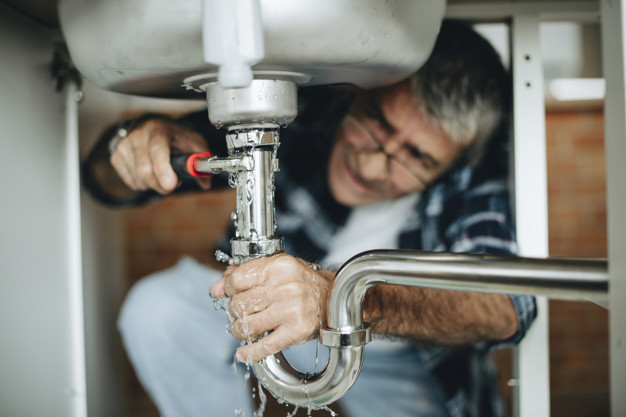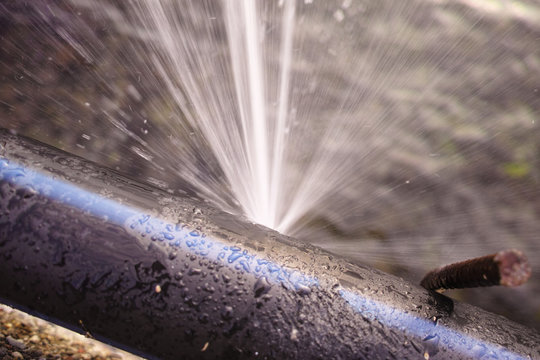5 Recurring Reasons for Water Leaks
5 Recurring Reasons for Water Leaks
Blog Article
Just about every person has got their unique thinking on the subject of Common Causes of Water Leaks in the Home.

"Beware of little costs. A little leak will sink a fantastic ship." - Benjamin Franklin.
He couldn't have actually been extra ideal due to the fact that water leakages in our homes result in a waste of sources, boosting our water bills. This increase could seem minimal at initially, it can lead to considerable expenses that can damage your bank. In addition to an increase in costs, water leaks additionally cause unwanted organic development, architectural damages, as well as also electric dangers.
If you have a water leakage isn't constantly very easy due to being unable to see most of the pipework in your home, figuring out. If you have had a boost in your water expenses lately, noticed water discolorations on wall surfaces as well as ceilings, smelt poor odor, etc. You could wish to consider requesting plumbing solutions to get it had a look at.
There are several sources of water leakages, and also we have compiled the usual factors below. Check to see if you have actually had associated problems in your home lately.
Blocked drains pipes
Food bits, dirt, and oil can cause clogged up drains as well as block the passage of water in and out of your sink. If undealt with, raised pressure within the gutters can finish and cause an overflow up cracking or breaking pipelines. To stay clear of clogged up drains pipes in your house, we encourage you to stay clear of putting bits down the tubes and regular cleansing of sinks.
High water pressure
You discovered your home water stress is more than typical but after that, why should you care? It runs out your control.
It would be best if you cared due to the fact that your typical water pressure must be 60 Psi (per square inch) and although your house's plumbing system is designed to hold up against 80 Psi. A boost in water stress can put a pressure on your home pipes as well as bring about splits, or worse, burst pipelines. Get in touch with a professional about controling it if you ever observe that your house water pressure is greater than common.
Deterioration
As your pipework grows older, it gets weaker and also a lot more prone to rust after the regular passage of water through them, which can gnaw at pipes and create fractures. A visible indicator of rust in your house plumbing system is discoloration and also although this might be tough to find because of most pipes hidden away. Once they are old to ensure a sound plumbing system, we encourage doing a regular appointment every few years as well as alter pipes
Weakened pipe joints
Pipeline joints are the components of our plumbing system where the pipes attach. It is crucial to keep in mind that also though pipelines are developed to endure stress and last for a while, they weren't made to last for life; for that reason, they would certainly wear away over time. An usual sign of harmed pipe joints is extreme noise from taps.
Busted seals
One more cause of water leakages in residences is broken seals of house devices that use water, e.g., a dish washer. When such home appliances are mounted, seals are mounted around water connectors for simple flow of water via the machine. Thus, a damaged seal can trigger leak of water when in operation.
With little or no expertise of plumbing, understanding your home's plumbing system sufficient to take care of several of these problems (without consequence) can be an inconvenience. Get in touch with plumbing specialists in Pittsburgh, Providence, Rochester, and also environ today, as well as they'll make those problems disappear.
He could not have been extra best due to the fact that water leaks in our residences result in a waste of resources, raising our water costs. If you have had a boost in your water bills recently, observed water stains on wall surfaces and ceilings, smelt lousy odor, and so on. A boost in water pressure can put a stress on your residence pipes and also lead to cracks, or even worse, ruptured pipelines. Another cause of water leakages in residences is broken seals of house devices that make use of water, e.g., a dishwashing machine. When such devices are set up, seals are set up around water adapters for very easy flow of water through the machine.
5 TIPS IN DETECTING A WATER LEAK IN YOUR HOUSE
Water leaks can be hard to find in your home, yet they can be so common. We rely on water every day in our home, which is why a leak can cause big problems. By detecting them early, you can save money and further damage, getting the problem fixed as soon as possible. Here are 5 tips to help you detect a water leak in your home, so you can contact a plumber straight away and get the issue sorted.
Check your water meter
Many people underestimate the value of the water meter in their home. It can be one of the best ways to tell if you have a leak early on, so you can get on top of it before issues start arising. Start by turning off all the water in your home: taps, washing machine, dishwasher, etc. Now take a look at the meter – if it’s still changing with everything turned off, it’s likely you have a fast-flowing leak that you need to get on top of straight away. If nothing changes, then leave your meter for an hour or two and come back to it. Did it change in this time? It’s likely you have a slower leak, which isn’t as urgent but still handy to get fixed so it doesn’t become a bigger problem.
Keep an eye on your bill
Another good way to detect a leak in your home is by keeping an eye on your water bill. It helps if you have a past bill from the same period of time. You can compare like for like and determine whether your water usage has increased significantly. If it has, there may be a leak in your system that you haven’t picked up before. A professional plumber can check through all of your pipes and determine where it is coming from.
Look for damage
If you have a leak inside your home, you will notice damage over time. Take a look at your showers and bathtubs and note whether any of the tiles surrounding the area seem to be discoloured or damaged in any way. There may be water stains, mould or peeling material that has resulted from a build up of moisture over time. Make sure you take a look under sinks at the back of cupboards that don’t get accessed regularly. This is where damage can go unnoticed and build up over periods of time.

As a reader about Where to Find Water Leaks, I imagined sharing that section was sensible. Sharing is caring. Helping others is fun. I am grateful for your time. Come back soon.
Top service, dial! Report this page